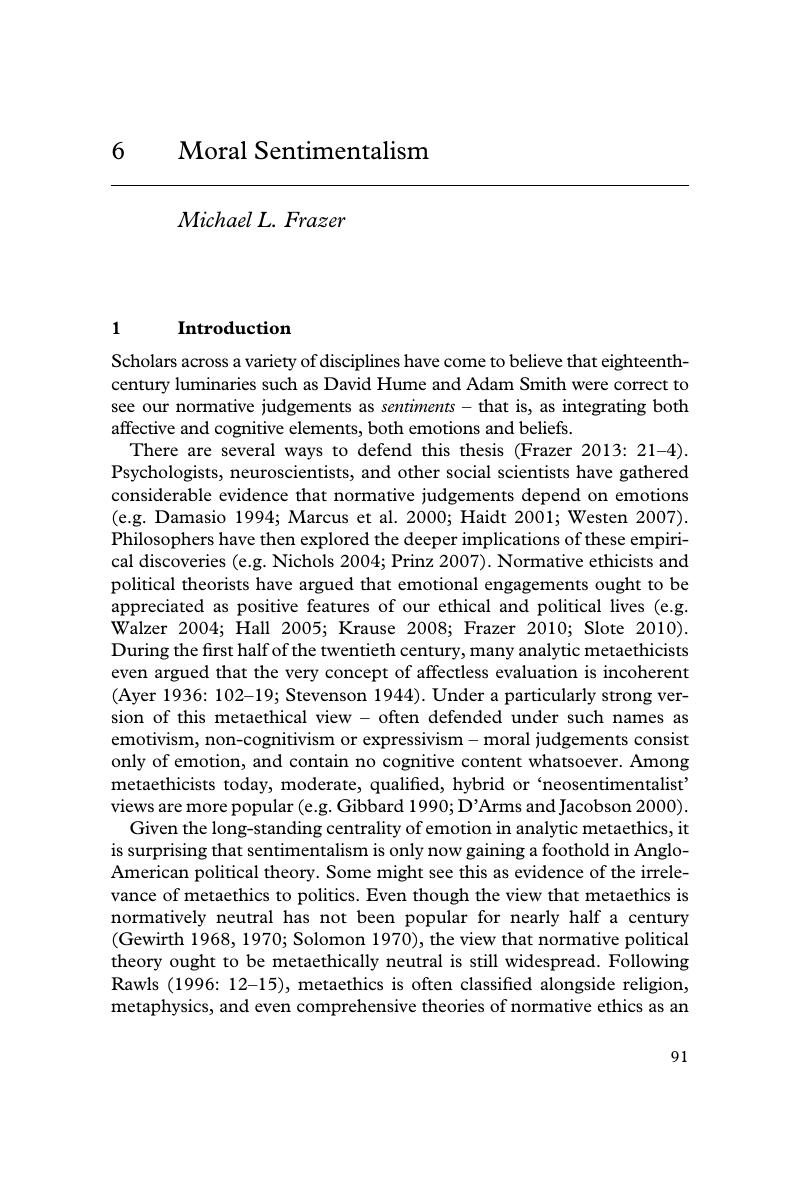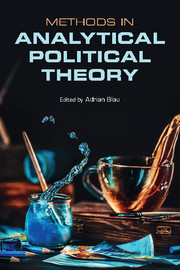Book contents
- Methods in Analytical Political Theory
- Methods in Analytical Political Theory
- Copyright page
- Contents
- Contributors
- Preface
- 1 Introduction: A ‘How-to’ Approach
- 2 How to Write Analytical Political Theory
- 3 Thought Experiments
- 4 Reflective Equilibrium
- 5 Contractualism
- 6 Moral Sentimentalism
- 7 Realism
- 8 Realistic Idealism
- 9 Conceptual Analysis
- 10 Positive Political Theory
- 11 Rational Choice Theory
- 12 Interpreting Texts
- 13 Comparative Political Thought
- 14 Ideological Analysis
- 15 How to Do a Political Theory PhD
- Index
- References
6 - Moral Sentimentalism
Published online by Cambridge University Press: 04 July 2017
- Methods in Analytical Political Theory
- Methods in Analytical Political Theory
- Copyright page
- Contents
- Contributors
- Preface
- 1 Introduction: A ‘How-to’ Approach
- 2 How to Write Analytical Political Theory
- 3 Thought Experiments
- 4 Reflective Equilibrium
- 5 Contractualism
- 6 Moral Sentimentalism
- 7 Realism
- 8 Realistic Idealism
- 9 Conceptual Analysis
- 10 Positive Political Theory
- 11 Rational Choice Theory
- 12 Interpreting Texts
- 13 Comparative Political Thought
- 14 Ideological Analysis
- 15 How to Do a Political Theory PhD
- Index
- References
Summary

- Type
- Chapter
- Information
- Methods in Analytical Political Theory , pp. 91 - 111Publisher: Cambridge University PressPrint publication year: 2017
References
- 2
- Cited by



